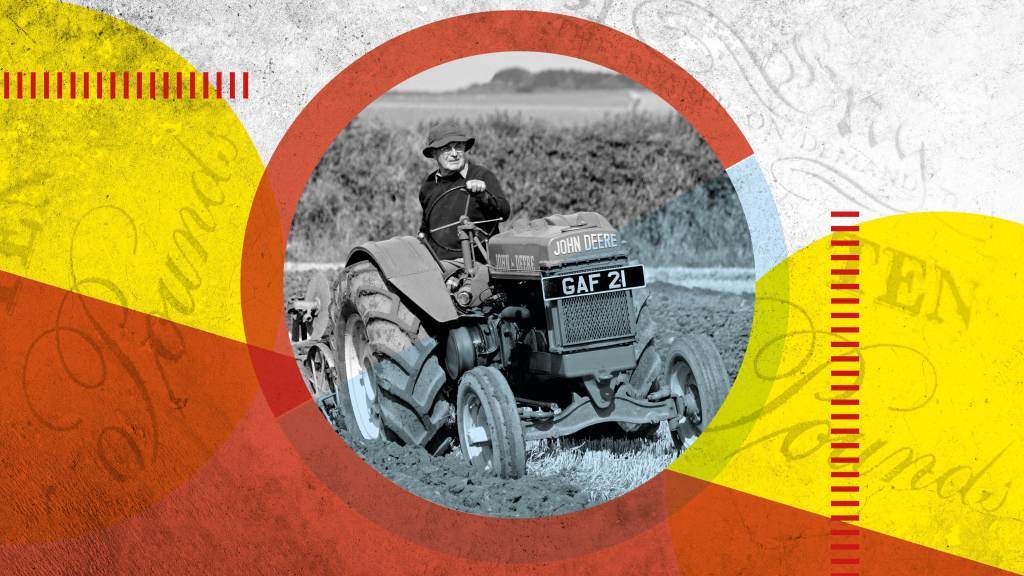Should Farmers Face Inheritance Tax?
Recent changes to inheritance tax announced during the budget indicate that starting in April 2026, the agricultural property relief will be limited to £1 million. The government claims that this cap is essential to prevent the extremely wealthy from abusing the relief. Conversely, critics assert that this move will devastate family farms, compelling many to sell their land to cover substantial tax expenses. In response, thousands of farmers are set to gather in London to protest against the government’s tax policy. This raises the question: should farmers be subject to inheritance tax?
Sir Edward Troup, who previously served as the director general of tax and welfare at the Treasury, reflects on the situation.
Historically, a popular saying attributed to Lord Salisbury suggests that the best time to impose taxes is upon death. However, the British public appears to disagree with this notion.
The proposed budget adjustments to curtail the generous inheritance tax (IHT) exemptions for farmland have sparked significant controversy. The source of this uproar remains ambiguous—whether it stems from genuine family farmers, conservationists concerned about the British landscape, or absentee landowners leveraging farmland as a tax-saving strategy.

When examining the role of investors, while opposition to inheritance tax may be widespread, it is crucial to note that the complete tax exemption for absentee farmland owners has largely been a historical quirk exploited by tax consultants.
Regarding concerns for the landscape, the renowned poet Thomas Gray painted a vivid picture of peaceful countryside, but if the existing IHT relief was intended to preserve such beauty, it has failed considerably. The decline of wildflower meadows, woodlands, and wildlife habitats over the last century is indeed a national tragedy. Though some farmers are striving to restore these natural environments, the government’s involvement should focus on subsidies and regulations rather than tax reliefs imposed upon death.
Thus, the rationale for tax relief hinges on preserving family farms across generations. Nevertheless, unlimited tax relief raises concerns about feasibility and fiscal responsibility.
The discourse should shift from merely debating the merits of limiting relief to examining whether maintaining relief at £1 million—potentially even more for couples when factoring in additional reliefs and the option to transfer lifetime shares—can effectively support the dwindling small family farms.
Rachel Reeves has approached this issue with a fresh perspective, emphasizing that all tax reliefs must justify their existence. She has granted the agricultural community the chance to argue for maintaining the relief at the £1 million threshold. Now, farmers must present their case for why this relief is essential at its revised level.
No
Jonathan Roberts, a representative from the Country Land and Business Association, an organization for landowners, expresses his viewpoint.
The government’s assertion that alterations to IHT reliefs will only impact 500 of “the wealthiest landowners” annually is misleading.
For one, a more extensive farm does not necessarily lead to higher profits. Our analysis suggests that farms around the size of 250 acres—approximately the average farm size—could become liable for death duties.
Additionally, many farms have diversified, as encouraged by government initiatives, to create additional revenue streams and safeguard their businesses against market fluctuations. This diversification makes them more susceptible to taxes under the new system.

These changes have created a potential crisis for around 70,000 family farms and businesses, all facing the prospect of debilitating tax liabilities.
While ministers claim the government cannot afford to allow farmers to pass away tax-free, I argue that we cannot afford the fragmentation of family farms. We can’t risk making food production unfeasible or dismantling multi-generational family businesses that are often the backbone of rural economies. Losing even a small percentage of rural enterprises could result in the loss of around 190,000 jobs.
Post-election, expectations were high for the government to prioritize growth, as outlined in its core manifesto. The rural economy is currently about 14 percent less productive than the national average, suggesting that addressing this disparity through planning reforms, affordable housing, and enhanced connectivity could potentially add £40 billion to the national economy. However, little progress has been observed in securing new policies to achieve these goals.
A clear message is essential for those in power—businesses drive economic growth, not taxation. No nation has ever achieved prosperity solely through taxation. With adequate support, rural businesses could stimulate the economy, generate quality employment, provide food for the population, protect the environment, and counteract the decline in biodiversity. Yet, following this budget announcement, the necessary support appears far from forthcoming.




Post Comment